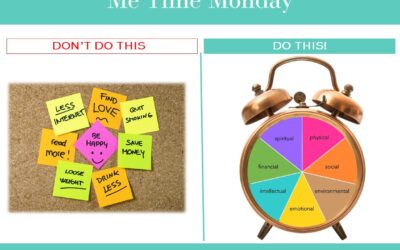It is February and while a tremendous winter’s chill has gripped much of the country, this is the month we celebrate warm, heartfelt love. While most of you may think I mean Valentine’s Day, I am actually focused on those family members performing that “labor of love” – caring for a parent, spouse or other loved one who has a chronic illness, disability or is simply just getting older.
So while love is in the air and red hearts are in every storefront window this month, the hearts I am more concerned about are those of the caregivers and their own health.
The American Heart Association tells us that heart disease is the Number One killer of women – twice as many women die from stroke or cardiovascular disease than all cancers combined, including breast cancer. To raise awareness, the AHA promotes its “Go Red for Women” campaign launching this month.
And, while all women must pay attention to maintaining their heart health, studies show that caregivers have twice the risk of developing a chronic illness such as heart disease based in part on the prolonged stress they encounter during their caregiving journey.
Unfortunately, the challenges that caregivers face when they take on the role of caring for a loved one can prohibit or prevent them from finding the time to care for themselves. This is the big red flag we have to wave this month to help caregivers find the time to avoid the mindfields which blow up their own self-care plan.
For instance, a study from the National Alliance for Caregiving on caregivers whose health has declined since they started caring for a loved one shows:
- Stress is a caregiver’s #1 issue and 91 percent report also suffering from depression
- 72 percent of these caregivers neglect their own doctor and dental appointments
- 10 percent adopt or resume bad behaviors such as smoking and they misuse alcohol or prescription drugs to cope
- 87 percent report getting less than eight hours of sleep a night and have less energy
- Almost four out of 10 said they have had weight loss or gain
Here are the five AHA tips for women aged 50 and over to review when it comes to keeping your heart healthy:
- Know your family history – you have a greater risk if a parent or grandparent had heart disease. In fact a new study released this month shows that a mother’s stroke history can help predict her daughter’s risk of heart attack or stroke.
- Don’t smoke and avoid second-hand smoke.
- Drink in moderation – while alcohol adds calories to your diet that can cause weight gain and your blood pressure can increase if you drink too much, four-fluid ounces of red wine a day can be all right according to some physicians.
- Eat a heart healthy diet – lots of fruits, vegetables, omega-3 fatty acids such as salmon or trout and fiber-rich whole grains. Also, stick to less than 1,500 mg of sodium a day and avoid sugar-sweetened beverages.
- Know your numbers – do you know what your good and bad cholesterol numbers are and what they should be? How about your Body Mass Index (BMI)? Are you getting at least 30 minutes of cardio exercise a day? Do you have a waist measurement of 35 inches or less? If you do not know your numbers – find out today and then check the Weight Control Information Network maintained by the U.S. Department of Health and Human Services and the National Institutes of Health to find out what these numbers mean and how to maintain healthy scores.
Doing all the right things is hard enough for the average woman, but when you are caring for a loved one, it becomes an even more daunting task. When I have spoken to caregivers, they say to me, “Give me a break – literally! How can I find time to exercise or get more sleep? I don’t even have time to take a shower and I eat standing up in the kitchen because I have no time.”
Yes, it is hard. This is where the love comes in. Caregivers are giving love to their loved one leaving precious little time to love themselves. So, if you have a mother, spouse, sister, friend, neighbor or co-worker who is a caregiver – what kind of Valentine’s wish can you send their way this year? Three ideas:
- Go Red – Go Respite: Give the caregiver you know a break so they can take a walk, get to a yoga class, take a nap, etc. If their caregiving journey looks like a long one, create a Lotsa Helping Hands community online where other family and friends can volunteer to give them break through a private calendar-centric community.
- Healthy Heart Help – Bring the caregiver in your life some heart healthy groceries – all cut up or in ready-to-eat freezer bags or snack bags. Make it easy on them to stay on track with good nutrition.
- Have a Laugh: The power of humor is scientifically proven. Having a good laugh at least once a day releases endorphins that enhance mood and have even been show to boost immune systems. Call the caregiver you know and have a good chuckle.
Sometimes it’s hard to find that balance between self-care and caregiving. But, by taking care of your heart health, you will ensure you continue to be the heart of your family. And, as a friend to a caregiver, warm their heart this month with an act of kindness and support. It will do both your hearts some good.




0 Comments